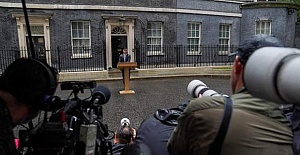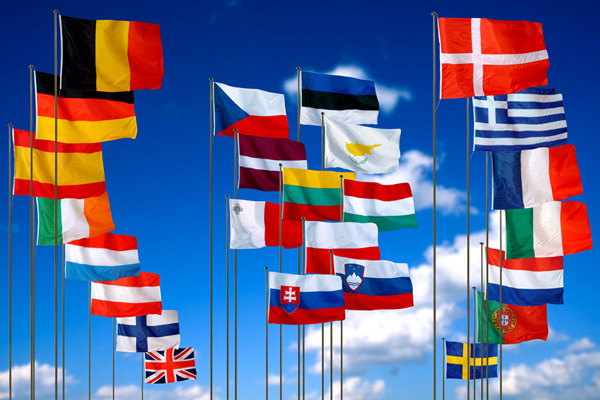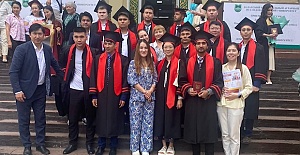Relations between Turkey and the European Union are at an all-time low says Laura Batalla Adam, the Secretary General of the European Parliament’s Friends of Turkey Group. This statement follows the recent non-binding resolution calling for the temporary freezing of accession talks which was passed in the European Parliament on November 24th with an overwhelming majority by 479 Members. The vote came as a reaction to Turkey’s handling of its internal affairs including efforts to remove the Gülen movement’s presence from its security, judicial and other state structures. The EU’s policy towards Turkey at this stage is one of cautious confrontation.
At present, EU-Turkey relations rest on the Joint Action Plan to address the refugee-migrant crisis affecting Europe. The plan was agreed in November 2015, when Turkey accepted the EU’s offer of visa liberalisation for the Schengen area, financial assistance and accelerated EU accession in return for stemming westward refugee and migrant flows. In March, a one-in-one-out system was also developed as a practical part of the plan through which one refugee in Greece would be re-admitted to Turkey in exchange for Turkey sending another to the EU. It is the third of the EU’s promises that MEPs took issue with recently.
The caution in the European Parliament’s move is clear. As Ms Batalla Adam explains for example, if the EU was to act on this vote, freezing talks would be different to suspending them, as suspension has legal implications that freezing does not. Suspension would require application of Article 5 of the 2005 negotiating framework which both Turkey and the EU had agreed at the start of the process. Initiating this article would require the European Commission to recommend that talks be suspended which would in turn be voted on by the European Council. Freezing negotiations temporarily however does not require these formalities and is therefore far less decisive; moreover the EU is under no legal obligation to carry out the resolution. The caution surrounding this move is reflected in the language used by MEPs as reported by the European Parliament’s website. Members stated for instance that Turkey remains “an important partner of the EU” that should remain anchored to it.
While Austrian law-makers have called for suspension, other EU leaders such as German Foreign Minister Frank-Walter Steinmeier have echoed the caution of the resolution despite disagreeing with its prescriptions. Though criticising Turkey for the same reasons as those MEPs and referring to any re-introduction of the death penalty as a red line for EU membership, he also emphasised the importance of strong relations and recommended that dialogue be kept open. In short, the EU’s approach is by and large cautiously confrontational.
This comes with the knowledge in Berlin and Brussels that co-operation with Ankara is imperative for any measures to address the refugee-migrant crisis effectively. If this situation persists however, the vital relationship between both parties could face further damage in future.

Indeed for all these cautiously worded and orchestrated statements, relations between the two sides have the potential to grow worse still. As anti-status quo sentiments continue to grow throughout Europe and beyond, including the referendum in Hungary which resulted in an over 90% vote against accepting any EU refugee-migrant quotas, and the recent electoral successes of Germany’s anti-mass migration Alternative für Deutschland (AfD) in recent state parliament elections, changing political dynamics within the EU could also be detrimental to EU-Turkey co-operation in the future. When considering that the AfD is likely to enter the Bundestag in national elections next year, such changes within the EU’s leading member-state could also further undermine relations with Turkey. Even if the party does not participate in a coalition government, any role it might play in opposition could still exert pressure on Mrs Merkel’s own Christian Democratic Union by challenging it for the right-wing vote and possibly swinging Germany’s policy orientation from within the Bundestag. Such moves would not be without roots in the AfD’s policy outlook as it categorically rejects Turkish EU membership, and has made this a condition for participation in any German coalition government.
Even without these developments, Germany’s traditional attitude towards Turkish accession has been sceptical. As early as 2004, Wolfgang Schäuble, now Germany’s Finance Minister, expressed support for a “privileged partnership” with the EU for Turkey rather than full membership. Moreover, as the British Conservative MEP Geoffrey Van Orden noted in a speech on November 17th at the British Parliament during an event hosted by the Centre for Turkey Studies and European Parliament Friends of Turkey, Berlin has its own concerns about Turkish accession because of the sway Turkey’s large population would afford it in representation in EU institutions, which could potentially undermine German influence over the bloc. If the EU’s leading member state is sceptical about Turkish membership, it is unlikely that the others would support full membership either.
This too could alienate Turkey as the EU’s ultimate failure to deliver accession alongside the existing difficulties surrounding visa liberalisation, will likely sour relations between the two sides even further. Moreover, while co-operation with the EU remains necessary for Turkey, especially given that the two have a Customs Union and that Germany, France and Italy are among its top five export destinations, it seems less and less likely that Turkey will still pursue greater integration with the EU in future if this deal collapses. Moreover, as it strengthens ties with Russia and China while retaining its place in NATO, Turkey is opting for a more balanced foreign policy, no longer seeing the EU as the be all and end all of its trajectory. Turkish President Recep Tayyip Erdogan confirmed this several days before the resolution passed by stating that Turkey should not fixate on EU membership, and adding that it should also consider joining the Shanghai Co-operation Organisation, a security and economic transnational group which includes Russia, China and several Central Asian states among its members. With the political will for further integration between Turkey and the EU remaining low on both sides despite the EU’s caution, Turkey’s relations with the bloc are likely to deteriorate further in the foreseeable future.
By Edward Rowe



 Advice for Enfield residents ahead of the General Election
Advice for Enfield residents ahead of the General Election Sunak promises tax cuts, economic stability, Conservative Party election manifesto
Sunak promises tax cuts, economic stability, Conservative Party election manifesto Ertan Karpazli, an independent MP candidate for the Enfield North constituency
Ertan Karpazli, an independent MP candidate for the Enfield North constituency Rishi Sunak announces a general election in a statement outside Downing Street
Rishi Sunak announces a general election in a statement outside Downing Street Residents of Spanish island of Mallorca launch initiative to thank tourists amid protests over mass tourism
Residents of Spanish island of Mallorca launch initiative to thank tourists amid protests over mass tourism Srebrenica Remembered, Lessons for Justice and Peace! YEE London held a reflective event
Srebrenica Remembered, Lessons for Justice and Peace! YEE London held a reflective event British Premier Keir Starmer to reset UK-EU relations with high-profile meetings
British Premier Keir Starmer to reset UK-EU relations with high-profile meetings Voters head to polls for UK general election
Voters head to polls for UK general election The Swiss official will take charge of the match between Real Madrid and Atalanta in Warsaw
The Swiss official will take charge of the match between Real Madrid and Atalanta in Warsaw Applications are now open for Walking and Cycling Grants London until 9 September 2024
Applications are now open for Walking and Cycling Grants London until 9 September 2024  Two Circles also appointed as exclusive media sales agency for UEFA Women’s Champions League
Two Circles also appointed as exclusive media sales agency for UEFA Women’s Champions League  England manager Gareth Southgate has resigned two days after defeat by Spain
England manager Gareth Southgate has resigned two days after defeat by Spain Joyce and Snell's planning application gets stamp of approval
Joyce and Snell's planning application gets stamp of approval The amount of bounce back loans fully repaid is just %13
The amount of bounce back loans fully repaid is just %13 Petrol prices higher than they should be, says RAC
Petrol prices higher than they should be, says RAC UEFA and Mastercard renew UEFA Champions League partnership
UEFA and Mastercard renew UEFA Champions League partnership

















